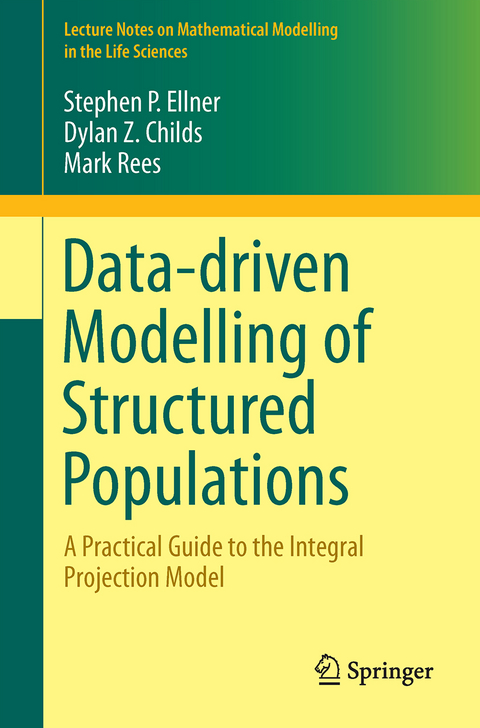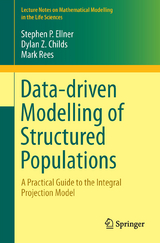Data-driven Modelling of Structured Populations
Springer International Publishing (Verlag)
978-3-319-28891-8 (ISBN)
Stephen P. Ellner is Horace White Professor of Ecology and Evolutionary Biology at Cornell University, USA; Dylan Z. Childs is Lecturer and NERC Postdoctoral Fellow in the Department of Animal and Plant Sciences at The University of Sheffield, UK; Mark Rees is Professor in the Department of Animal and Plant Sciences at The University of Sheffield, UK.
Stephen Ellner is a Horace White Professor of EEB at Cornell University, Department of Ecology and Evolutionary Biology. His general interests are in theoretical population biology and evolutionary ecology. Dylan Childs is an NERC Postdoctoral Fellow at the University of Sheffield. His key research interests include life history theory, evolutionary demography, structured population modeling, and host-parasite dynamics. Mark Rees is a Professor in the Department of Animal and Plant Sciences at the University of Sheffield. His key research interests include evolution of plant reproductive strategies, modeling and management strategies for weed populations, population biology of invasive plants, and modeling structured populations using integral projection models.
Introduction.- Simple Deterministic IPM.- Basic Analysis 1: Demographic Measures and Events in the Life Cycle.- Basic Analysis 2: Prospective Perturbation Analysis.- Density Dependence.- General Deterministic IPM.- Environmental Stochasticity.- Spatial Models.- Evolutionary Demography.- Future Directions and Advanced Topics.
| Erscheinungsdatum | 08.10.2016 |
|---|---|
| Reihe/Serie | Lecture Notes on Mathematical Modelling in the Life Sciences |
| Zusatzinfo | XIII, 329 p. 67 illus., 29 illus. in color. |
| Verlagsort | Cham |
| Sprache | englisch |
| Maße | 155 x 235 mm |
| Gewicht | 544 g |
| Themenwelt | Informatik ► Weitere Themen ► Bioinformatik |
| Mathematik / Informatik ► Mathematik ► Angewandte Mathematik | |
| Naturwissenschaften ► Biologie | |
| Schlagworte | Computer Appl. in Life Sciences • Demographic measures • Deterministic IPM using R • Environmental Stochasticity • integral operators • Integral Projection Models • Mathematical and Computational Biology • Mathematical Ecology • mathematics and statistics • perturbation analysis • population dynamics • Structured populations |
| ISBN-10 | 3-319-28891-1 / 3319288911 |
| ISBN-13 | 978-3-319-28891-8 / 9783319288918 |
| Zustand | Neuware |
| Haben Sie eine Frage zum Produkt? |
aus dem Bereich




